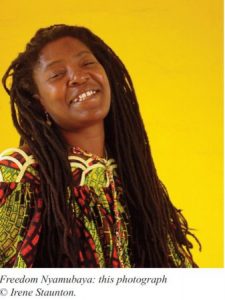 Africa is gifted with a blessing of spoken word artists, literalists, wordsmiths and poetry arts activists. Recently in Zimbabwe dub poet and UNESCO Affiliate Chirikure Chirikure and fellow poets hosted a lineup of great writers and poets through the now the highly recognized literary arts fete, Litfest Harare in partnership with Glasgow University, Daves Guzha’s Theatre in park, United States of America Cultural Affairs in Harare and others. LitFest Harare Voices stitched together the November sacredness with the December Christmas fever.
Africa is gifted with a blessing of spoken word artists, literalists, wordsmiths and poetry arts activists. Recently in Zimbabwe dub poet and UNESCO Affiliate Chirikure Chirikure and fellow poets hosted a lineup of great writers and poets through the now the highly recognized literary arts fete, Litfest Harare in partnership with Glasgow University, Daves Guzha’s Theatre in park, United States of America Cultural Affairs in Harare and others. LitFest Harare Voices stitched together the November sacredness with the December Christmas fever.
The Sotambe Live Literature Hub curated by fellow poet Mbizo Chirasha saw poetic words bathing copper belt of Kitwe to welcome the beautiful month of October. The Sotambe Live Literature Hub was a collaboration of Sotambe Film, Documentary arts Festival with the International Human Rights Arts Festival founded by Writer, Artist Thomas Block. The Festival brought together poets from the SADC region that included Pusetso Lame of Botswana, trailblazing Vanessa Chisakula of Lusaka Zambia, and the dare – daring Philani Amadeus Nyoni of Zimbabwe.
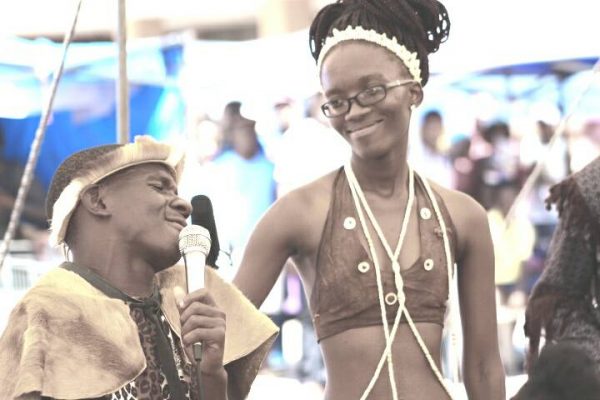
Africa’s poetry year was capped by the Maruping festival (GBV issues themed festival) in Botswana in partnership with European Union Delegation in Botswana bringing poets from around the world.

In that same literary arts activism wavelength, the Brave Voices Poetry Journal and the Zimbabwe We Want Poetry Campaign founded and curated by Mbizo Chirasha, an Internationally acclaimed literary arts projects curator and poet introduces the FREEDOM VOICES POETRY WRITING PRIZE, an international poetry writing contest that saw more than 50 poets and activists participating from all over the globe. The contest was judged by globally revered poets and acclaimed writers that included Professor Michael Dickel, poet and editor James Coburn, reputable journalist and published writer Omwa Ombara and professional writing mentor Tracy Yvonne Breazile. The Winners of the 2019 are Adesina Ajala, a Nigeria poet with his poem FOR KEN SAROWIWA (First Prize), Chrispah Munyoro, a Zimbabwean poet with her poem ECHO CHAMBERS (Second Prize), and last but not least Christopher Kudyahakudadirwe, a South Africa based Zimbabwean poet with his poem THE BUDDS ARE FRUITING (Third Prize). We have seven special mentions. The winners are to be published in five digital poetry spaces including the new look Brave Voices Poetry Journal and the seven special mentions will be featured in two platforms including the BRAVE VOICES POETRY JOURNAL.
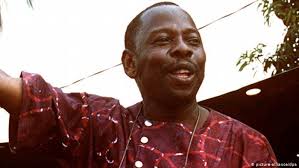
The 2019 Freedom Voices Poetry Writing Prize was paying Tribute to Unique Heroes / Heroines. It is an Ode for Cadres of resistance (human rights, anti-imperialistic, antiapartheid, freedom of expression, fight for political justice, right to economic justice and right to social inclusion) — Ken Saro Wiwa for movement for the survival of Ogoni people (Nigeria), Dedan Kimathi (Kenyan liberation struggle), Steve Biko (fighting inequalities in South African apartheid), Lookout Masuku (fighting for political justice in Zimbabwe), Charles Dambudzo Marechera (PenSlinger of Truth in Zimbabwe), Ambuya Nehanda (medium spirit of Chimurenga (war of liberation) in Zimbabwe), Ruth First (South African fighter for civil rights), Winnie Madikizela Mandela (fighter for political and economic rights in South Africa), Itai Dzamara (fighter for human rights and freedom of expression in Zimbabwe), Freedom Nyamubaya (gunslinger during war of liberation, poet against dictatorship regime in Zimbabwe).
ADESINA AJALA (Nigerian Poet) on winning the First Prize:
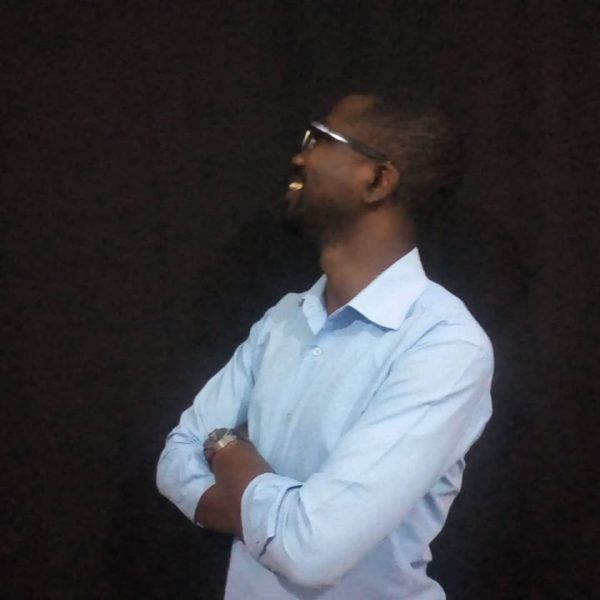
October 10, 1941,
A sweet cry creaked into the crevices of Bori,
Cascaded with the swings of time
into songs in a time of war.
Like the anopheles mosquito, war was the drill poking Basi & company—
an ethnic minority, crisp lands & fecund rivers.
A sprouting Nigerian medical doctor and writer, Adesina Ajala, desires to grow roots in the loam of the pen and the stethoscope. He does not know how he would fare, but he believes in journeying, in chances, possibilities and the divine. His works have found home in Writers Space Africa, EBOquills, Libretto, Featiler Rays, Brave Voices Poetry Journal and elsewhere. He was the co-winner of the first place of 2018 TSWF Writers Prize. He is on Instagram as and tweets @adesina_ajala.
CHRISPAH MUNYORO (Zimbabwean Poet) on winning the Second Prize:
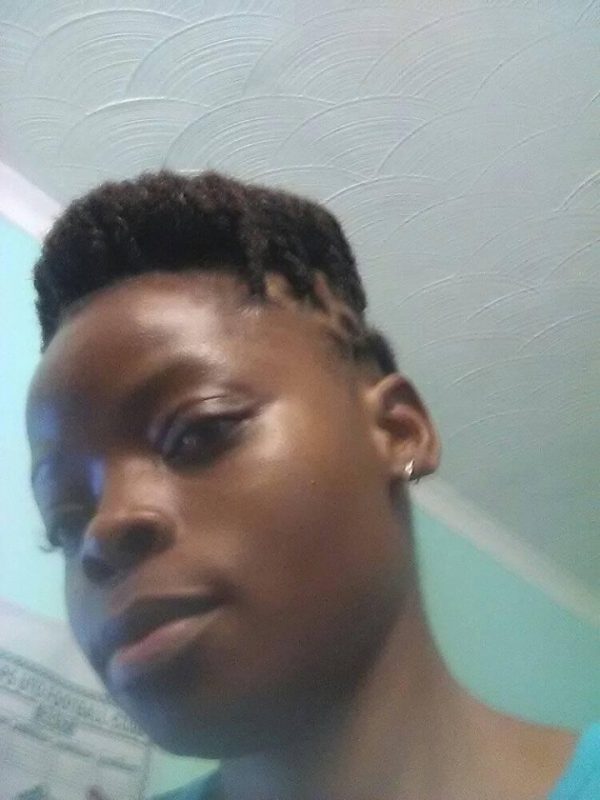
Lullaby of sjamboks, button sticks and tear gases
I am a graduate of doom
Hunger and thirst my delicacies
Daughters and sons of darkness
“I am a woman who never backs on what she wants to achieve. Ambiguous and hard work is the keys to success. Patience is a virtue I live by I don’t want cut out turn success. The saltiness of sweat unlocks hidden destinies. I am a down to earth woman who looks up to God with zeal.”
CHRISTOPHER KUDYAHAKUDADIRWE (Zimbabwe poet based in South Africa) on winning the Third prize
Who will tell Dambudzo Marechera
That the seeds that he sowed in us
Have sprouted and are doing well?
That’s right, we want him to know that
The flowers he left slowly budding
Have unfurled their bright petals
To grace the garden of literary bliss
Allowing bees to drink nectar sweet verse?
Christopher ‘Voice’ Kudyahakudadirwe is a Zimbabwean freelance writer, poet and teacher living and working in South Africa. His first poems appeared in a magazine called Tsotso which was published by the Budding Writers Association of Zimbabwe in the early 90s. Over the years his poems have been published in the following anthologies among others: Harvest: The University of the Western Cape Masters in Creative Writing Poetry Anthology 2016, Best “New” African Poets 2015 Anthology, Zimbolicious Poetry Anthology Volume 1. And his short stories in, Ghost-Eater and Other Stories, New Contrast, Moving On and Other Stories. He is currently running a poetry blog called www.kudyahakudadirwe.wordpress.com where he publishes his own poems.
The magic was also in the judging:
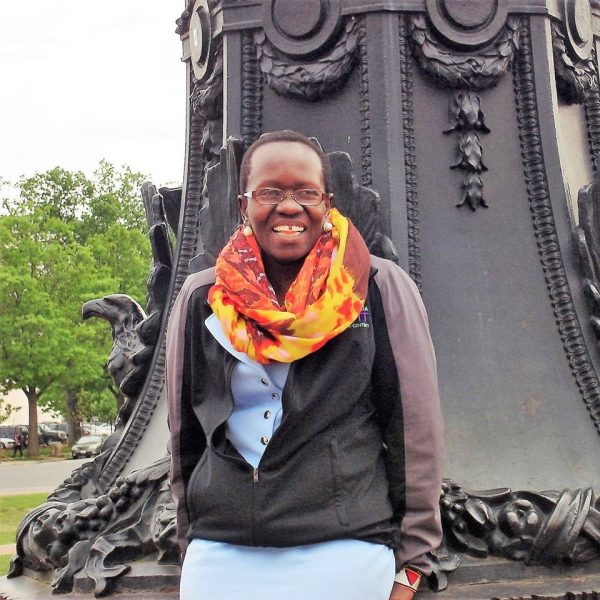
The competition was pretty stiff. I hated to let some poems go. “I hope the rest get literary mentions. Thank you for the opportunity to judge.” Author Omwa Ombara (First Phase Judge). Omwa Ombara is the Editor in Chief at Tulipange Africa Media, a diaspora based magazine in United States of America and Contributing Editor of Women Global Affairs at WOMAWORDS LITERARY PRESS.
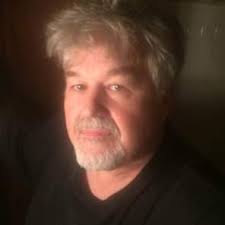
James Coburn (Third Stage Freedom Voices Poetry Writing Contest) is an Oklahoma poet in the United States of America. Coburn has always valued the subtext of life and seeks to reveal its undercurrents. He believes indifference is the enemy of man as it is the benefactor of ignorance, racism and xenophobia.
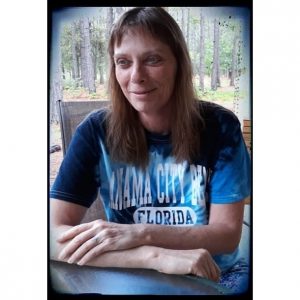 “Reading the poems, I was delighted to find polished and confident voices. The poets offered a promise of creative potential surpassing my expectations. The quantity and quality of the writing served to motivate and challenge the mind with a common respect for the voices that linger in our shadows, reminding us of the importance that poetry can bring to problems that demand solutions. The only problem that I found was removing some from the list. This task was far more difficult that I had imagined. In the end, the poems that most closely matched the guidelines were the only match for decision making. They were all beautifully crafted in both form and function. Although ultimately, there will be a list of winners, I found all of the poems that I read to be prized pieces of poetry that deserve a standing ovation. I found letters meant for reading and listening. Literature and Orature. I do declare, this was a tough task. Thank you, Brave Voices Poetry Journal 67, for paying tribute to unique heroes and heroines and celebrating their uniqueness. Although ultimately, there will be a list of winners, I found all of the poems that I read to be prized pieces of poetry that deserve a standing ovation. I found letters meant for reading and listening. Literature and Orature.” — Tracy Yvonne Breazile.
“Reading the poems, I was delighted to find polished and confident voices. The poets offered a promise of creative potential surpassing my expectations. The quantity and quality of the writing served to motivate and challenge the mind with a common respect for the voices that linger in our shadows, reminding us of the importance that poetry can bring to problems that demand solutions. The only problem that I found was removing some from the list. This task was far more difficult that I had imagined. In the end, the poems that most closely matched the guidelines were the only match for decision making. They were all beautifully crafted in both form and function. Although ultimately, there will be a list of winners, I found all of the poems that I read to be prized pieces of poetry that deserve a standing ovation. I found letters meant for reading and listening. Literature and Orature. I do declare, this was a tough task. Thank you, Brave Voices Poetry Journal 67, for paying tribute to unique heroes and heroines and celebrating their uniqueness. Although ultimately, there will be a list of winners, I found all of the poems that I read to be prized pieces of poetry that deserve a standing ovation. I found letters meant for reading and listening. Literature and Orature.” — Tracy Yvonne Breazile.
Tracy Yvonne Breazile (Second Phase Judge) is a Writer living in the United States of America. She was granted the opportunity to serve as Writer/Mentor in Residence with the 2018 Zimbabwe We Want Poetry Mentorship Program, originated by Mbizo Chrirasha.Breazile studied Language and Literature with a concentration in Professional Writing at Columbus State University, Columbus, Georgia, USA.
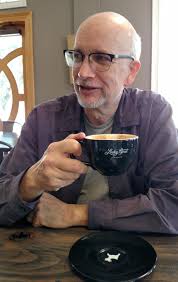
“Poetry contest judges almost always must comment on the subjectivity of what we do. While the Freedom Prize has criteria to decide the quality of the poems, which I used, how well we I as a single reader see the fit of any given poem to those criteria has to do with myself as reader as much as to the poem itself. In this case, there were four criteria: 1.) The poem fit the stated theme of the contest, 2.) the poem was indeed poetry and not slogans and clichés, 3.) the quality of the words and language used, and 4.) the originality and creativity of the poem. The first round of judging selected a “short-list” of ten poems, from which I was asked to select and rank the three best poems. All of this done anonymously, of course.
“Another reader reading the ten poems on the short-list of poems might have found other poems of more merit for one reason or another. Reasonable readers may disagree with each other. I had the honor of being asked to select, and I have chosen three that I think stood out. However, this was not an easy task. The passion of the voices in these ten poems would come across to any reader. The music of the poems, with rhythm and rhyme flowing, consonance and assonance, sounds crafted into what we call poetry. The poet of each of these poems deserves praise both for political activism expressed as poetry and for caring for others, their people, and the world.
The Third Place poem I chose is The Buds Are Fruiting. In this highly original poem, we learn “That the seeds…” Dambudzo Marechera“…sowed in us/ have sprouted and are doing well…” and “The flowers he left slowly budding/ Have unfurled their bright petals…” Unfortunately, “fermenting corruption,” “nepotism,” and “cancerous looting” have also budded, and need to be nipped. Merechera is blamed and indicted by finger pointers. Yet, the poem ends with hope: “We, the little buds, will continue/ That work that you left unfinished.
“The Second Place poem, Echo Chamber introduced me to a new word, eobiont (a hypothetical primordial pre-life chemical) in its opening line. The poem moves from the “father” (of life?) to “Living in darkness” and moves through Sodom and Gomorrah, vampires that Christen the speaker of the poem in Hades…the speaker’s “toys, wails and anguish/ Bathing with my sweat…” This dark poem paints a vivid picture in images painted with a few words, and in these images we see and feel the suffering of Africa and its children from “That chieftain, who rules by subterfuge/ Who had fried his heart eons ago/ In glee at the cries of the babies…” This poem strongly condemns and indicts the cruelty of those in power who savor the suffering of others. Rather than taking responsibility and stopping the suffering, they savor it, and this has cost them their hearts (and souls).
“(For Ken Saro-Wiwa), my selection as the First Place poem in the Freedom Prize contest, combines the strengths of these other two poems. It speaks to an historical figure, using strong images and poetic skill to create a poem that reaches the heart, lays bare injustices, but also ends with a type of hope. After a significant date in the first line, “October 10, 1941,” we read “A sweet cry creaked into the crevices of Bori…” The repeated hard “c”— cry, creaked, crevices— pulls us along with some dread, given their contretemps to the “sweet.” The next line begins with “cascaded,” repeating that same hard “c” into “the swings of time/ into songs in a time of war.” In the next stanza we read that “Shrapnel of crude oil scarred faces of waters.” The oil goes on to “march” through farmland, destroying the environment as it goes, until “This loud silence would be treasonmerely set in four farcical plays.” We are given “genocide,” “warlords,” and “gallows,” along the way “the agony in the Ogoni girl became bared on the transistor radio.” And after Saro has been hung, where is the hope? “Tell the hand that cuts the mahogany, his stump has sprout fresh leaves./ This poem, a leaf, sways.” The hope comes from the poem, from poets. At least, we hope that this will be true.” — Michael Dickel, Jerusalem, November 2019
Michael Dickel (Finalists Judge) has authored six published books and chapbooks (pamphlets) of poetry and short fiction, and published over 200 individually published poems, short stories, and non-fiction pieces, in addition to book-reviews and academic articles—under his birth name, Michael Dickel.
RESILIENCE IS THE KEY –
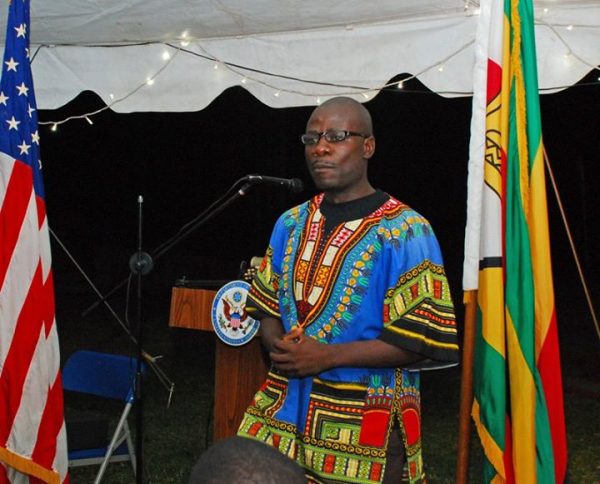
“We advocate for freedom of expression and upholding of human rights through our voices of resistance – POETRY and Literary Arts Activism Interventions like the Freedom Voices Poetry Writing Prize.” MBIZO CHIRASHA is the Originator of the Zimbabwe We Want Poetry Campaign, Curator of the Brave Voices Poetry Journal and the Founder of the Freedom Voices Poetry Writing Prize.
